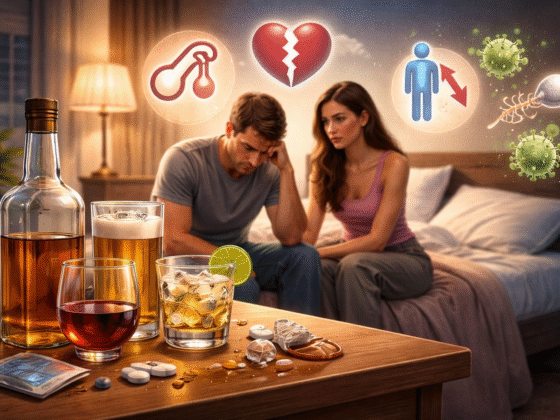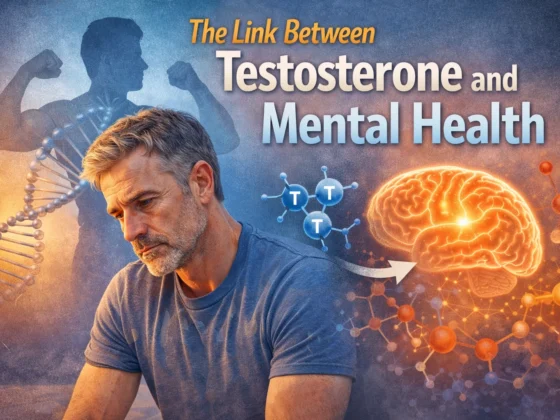Last Updated on 21st January 2025 by Charlie Walsh
Lots of things that start out as physical complaints can become emotional constraints on our lives and vice versa, for instance, an injury can cause you to miss time at the gym and this can in turn affect your mental health further down the line. When we put it like that it seems pretty obvious doesn’t it. No matter how temporary a change in circumstance may be this can greatly affect your life moving forwards.

To give yourself a fighting chance you’ll need to be on your A game and understand how the two things can inter weave let’s take a look at how the following things can affect our mental and physical health.
Diet and physical health
For your health to improve consider the following, diet is 80 percent of the battle and 20% is exercise. The worse you eat, the unhealthier you are. When you eat a lot of saturated fats and sweets, drink soda with meals, your body will start to show signs and your mental health will also deteriorate. Suddenly you will see that you have gained some weight, your skin looks worse and generally you feel tired and unhappy. It’s not only about how you look but also about how your inner organs work. The worse you eat, the unhealthier your organs are. Think also about water. Water is the most important thing to our health. Try to drink 8 glasses of water per day to make your body function better.
Diet and mental health
A healthy diet is connected with our mental health and how we feel during the day. One of the best diets (diet means a lifestyle, not just a period of time) is the one that comes from Mediterranean places. This diet includes a lot of vegetables, fruits, seafood, fish, legumes, nuts, beans, cereals, grains, and oil. Fish oil is said to reduce depression and anxiety, and that is why fish oil is so important. A healthy diet makes us feel happy, our body looks better and when our body likes what we are putting inside it – our mental health gets better too.

Exercises and mental health
Sport is a great way of keeping in shape both mentally and physically – plus exercising can sometimes be better than taking pills. Pills are chemically made tablets that are said to help us. Whilst prescribed medicines may help, they can have nasty side effects. Exercising is highly beneficial, running for 15 minutes a day or walking for an hour reduces the risk of major depression. Moreover, if you start to exercise a bit every single day, you will be able to stay on top of your mental health and try and keep the symptoms at bay. Sport is a powerful solution when it comes to fighting off depression. Sport causes changes in your brain like neural growth, reduced inflammation, creates activity patterns that promote feelings of calmness and overall well-being. Working out also helps your body with releasing endorphins. They are hormones in your brain that make you feel happy and motivated. Finally, exercise can also serve as a distraction that helps you with breaking the circle of negative thoughts.
Drugs and alcohol and physical health and mental health
Drugs and alcohol may seem like a quick fix, but it can have devastating effects both short and long term. By putting chemicals into your body you may only be masking your problems and causing yourself further distress down the line. Instead of “self-medicating” consider talking to a health professional about your issues, by understanding the root causes you can better equip yourself to deal with anxiety and depression in the future. These coping mechanisms will ensure you break any self-destructive cycle you have found yourself in – taking illegal drugs just once runs the risk of death, they are illegal for a reason. Drugs are unregulated and designed to generate income, alcohol can come with similar risks attached too. Alcohol removes inhibitions and can find us taking risks we simply wouldn’t entertain when sober, not to mention the hangovers, alcohol impairs you and can have a disastrous effect on your home and work life. Alcohol can also increase the risk of suffering from depression and anxiety.

Medication – physical and mental health
Any chemical medication can affect your body and your mental health. Unfortunately, if you have a pre-existing mental health condition and you are not aware of it – the long lasting damages of medications can stay with you and make your life seem even worse. Short term effects of medications are: anxiety, mood swings, depression, sleep problems and psychosis. You can also suffer from drug-induced anxiety disorder especially when you want to stop taking medication. It is a period of severe anxiety when your heart rate increases, with trembling, sweats, shortness of breath and a fear of losing control. Also, in some cases you may even suffer from audible or visual hallucinations. What are the long term effects? Ongoing mental health problems are the worst long term effects. It is possible to spark mental health issues you didn’t know existed from taking some medications.










